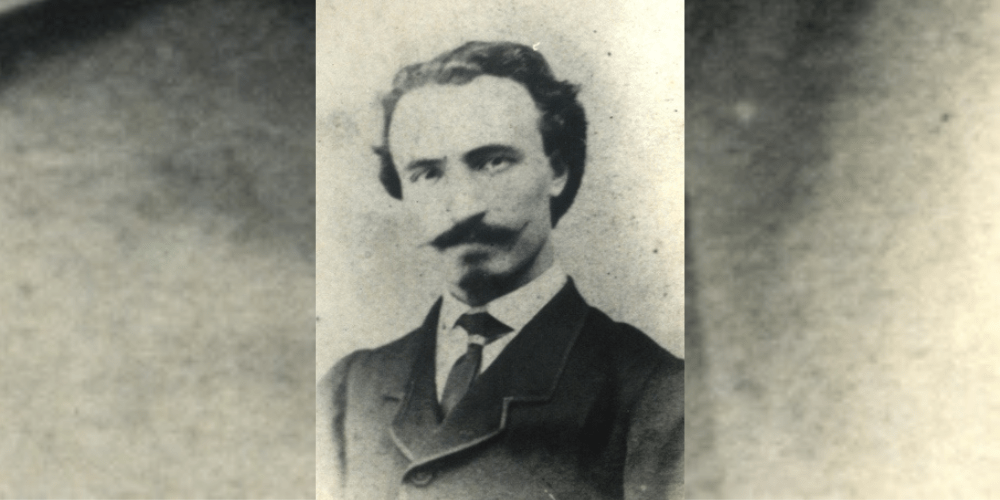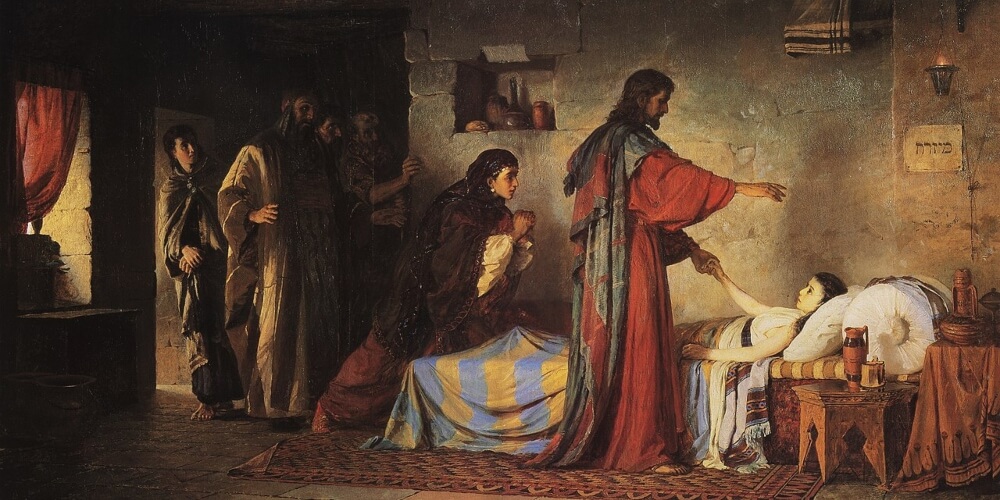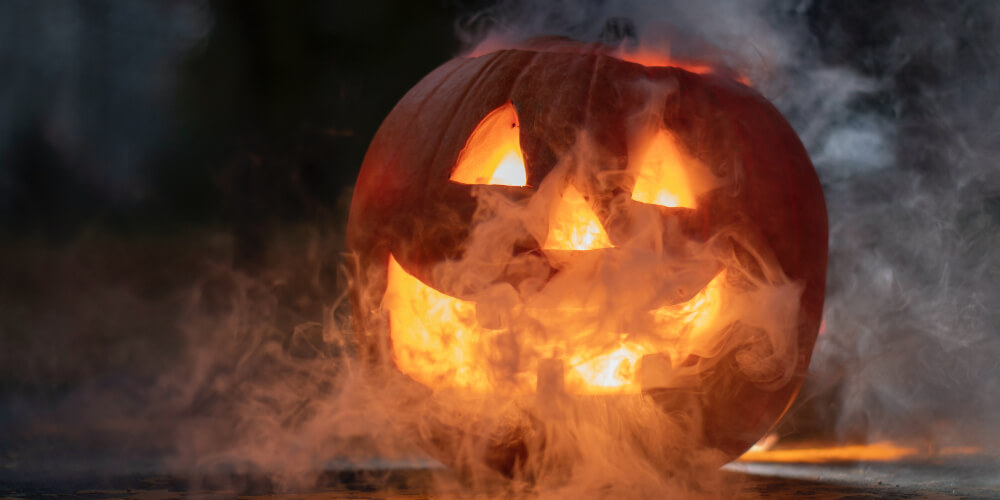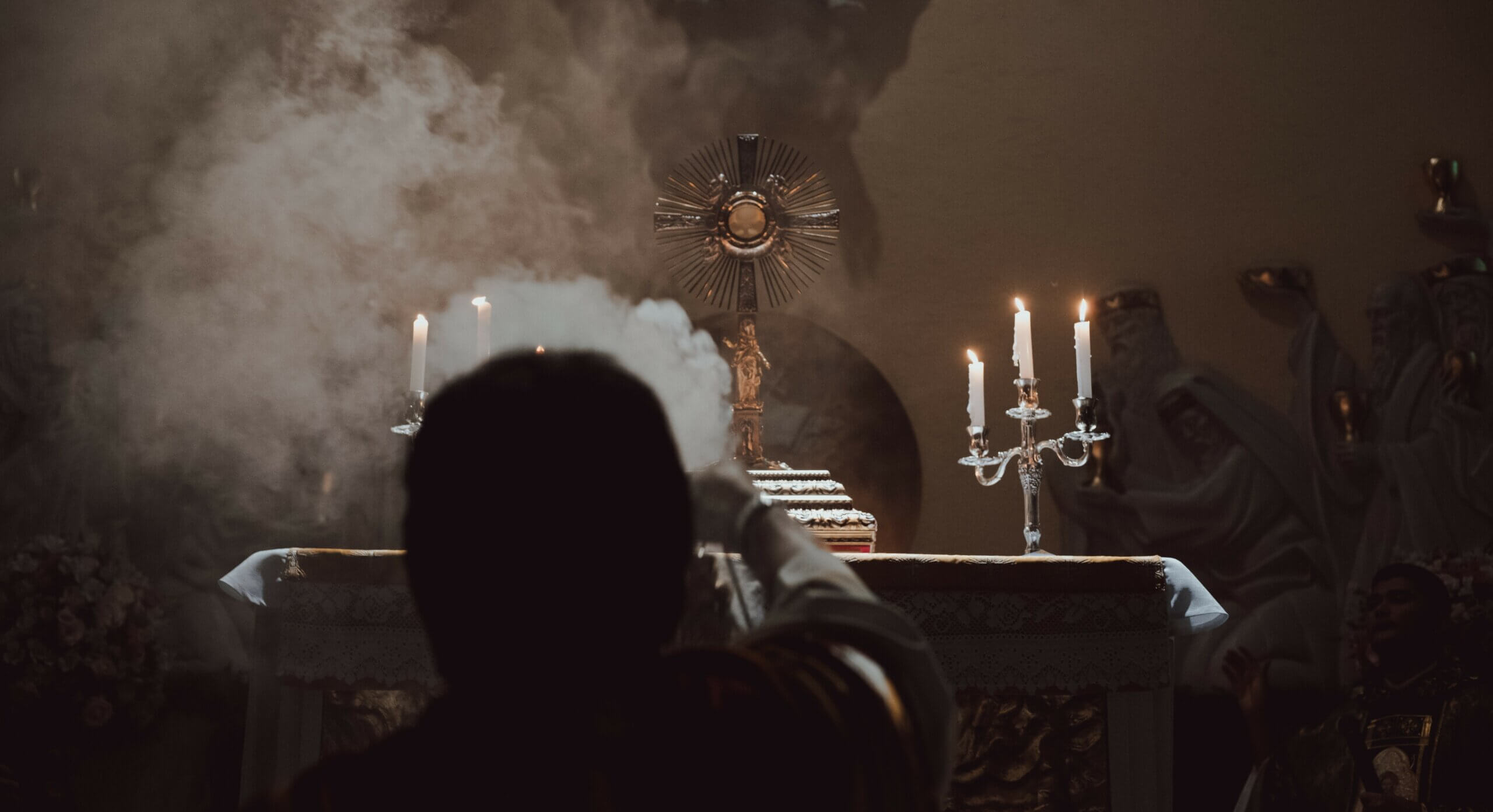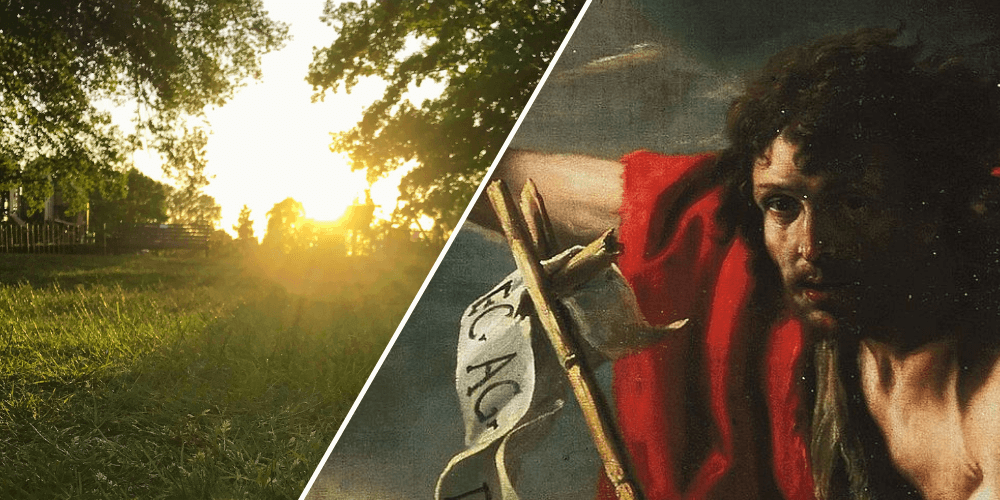
The Nativity of St. John the Baptist—his feast day—is celebrated on June 24th.
Hosting a bonfire or having a campfire with your family is a simple and wonderful way to celebrate this special saint this summer!
Afterwards, you can close the evening with an intercessory prayer. It’s a devout way to inaugurate the arrival of summer while honoring the “voice in the wilderness” who announced the arrival of Christ to the world.
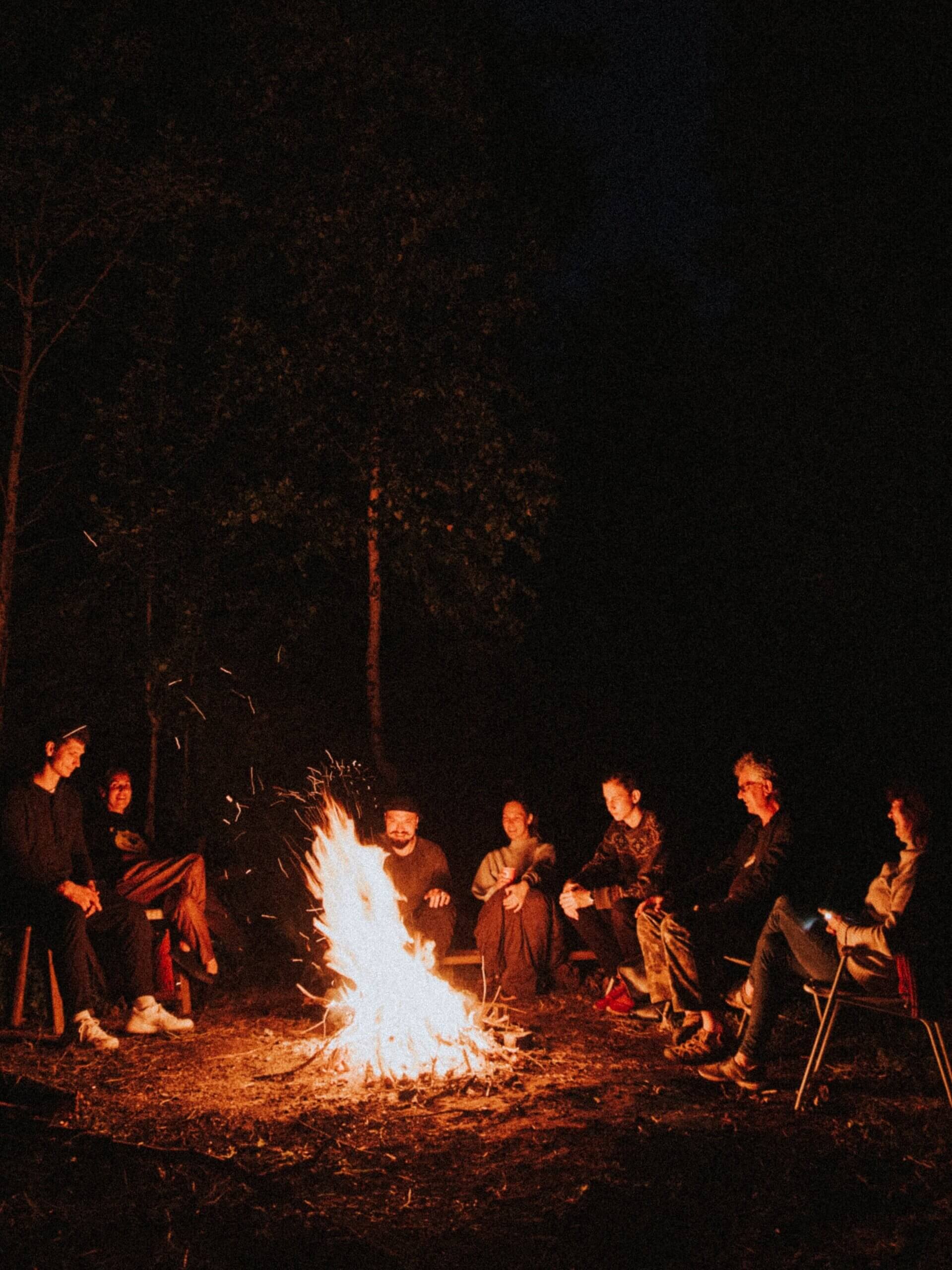
The idea to have a bonfire and gathering of friends and family is not new. It’s a tradition that was started by other cultures.
On the Vigil of the feast, June 23rd, families and communities would gather around the fire dressed in their national or local costumes and pray together to Saint John for his intercession that the summer might be a blessed season for homes, crops, and throughout the country. Sometimes they would perform traditional folk dances accompanied by singing and music.
The following is a prayer that can be said:
O God who hast made this an honored day for us by the birth of Saint John: bestow upon Thy people the grace of spiritual joys, and guide the hearts of all Thy faithful into the way of eternal salvation. Amen.
The Story of St. John the Baptist
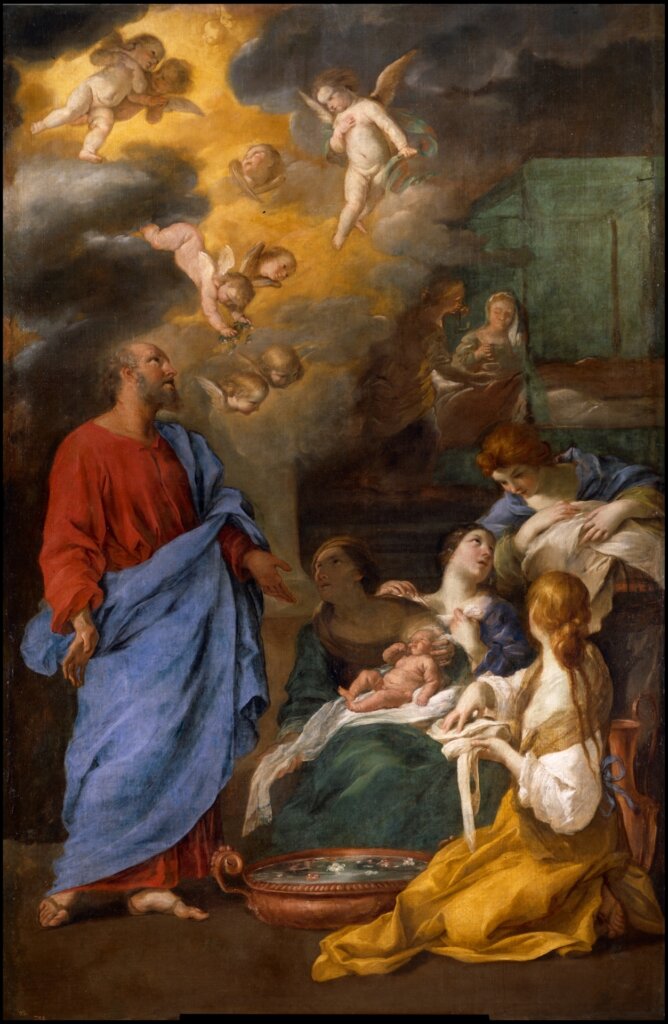
The Scriptures tell us that St. John the Baptist was born through the miraculous gift of God to Zechariah and Elizabeth, who were too old to bear children. The Angel Gabriel visited Zechariah to tell him that they would have a son and that they should name him John.
Because Zachariah was skeptical, he was rendered mute until the time his son was born. The child was then named John, in fulfillment of God’s will.
Scripture tells us that when Our Lady went to visit her cousin Elizabeth, who was six months pregnant with St. John, the infant leapt in her womb:
And it came to pass, that when Elizabeth heard the salutation of Mary, the infant leaped in her womb. And Elizabeth was filled with the Holy Ghost…
Luke 1:14 (Douay Rheims translation)
But we first hear about John the Baptist in the Old Testament from the Prophet Isaiah who wrote:
The voice of one crying in the desert: Prepare ye the way of the Lord, make straight in the wilderness the paths of our God. I am sending my messenger ahead of you; he will prepare your way.
Isaiah 40:3
In the Old Testament, God spoke through the prophets and through John the Baptist, son of Elizabeth and Zechariah, who was the last great prophet before Jesus. John announced the coming of Jesus and instructed the Jewish people to prepare the way of the Lord.
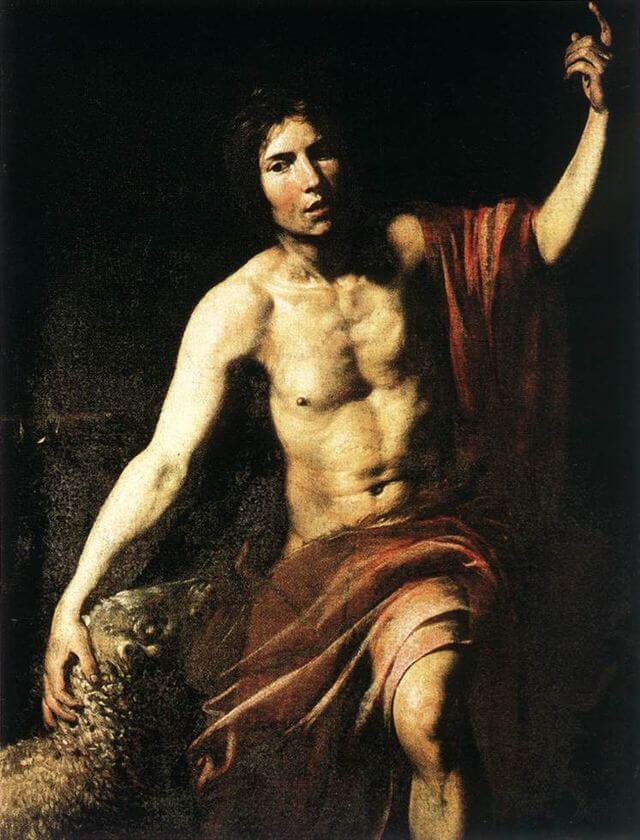
When “the Baptist” appeared in the desert proclaiming a baptism of repentance for the forgiveness of sin, the people of Judea and Jerusalem went out to the Jordan River to see what he was up to and to hear his message. (Approximately 200 miles long, the Jordan River lies east of Jerusalem and flows from north to south through the center of Palestine. It begins in Syria, and flows through the Sea of Galilee to the north end of the Dead Sea.)
As people recognized their sins and their need to repent, John baptized them in the river.
He wore camels’ hair clothing with a leather belt around his waist, and “ate locusts and wild honey.” He proclaimed:
“One mightier than I is coming after me. I am not worthy to stoop and loosen the straps on his sandals. I have baptized you with water. He will baptize you with the Holy Spirit.”
Mark 1:1
The Bible tells us that one day, while John was preaching and baptizing, Jesus came to John at the Jordan River to be baptized.
When Jesus came up out of the water the heavens opened, and the Holy Spirit, in the form of a dove, descended upon Jesus. Then the witnesses heard a voice from the heavens saying, “You are my beloved son; with you I am well pleased.”
Internalize the Message of St. John the Baptist
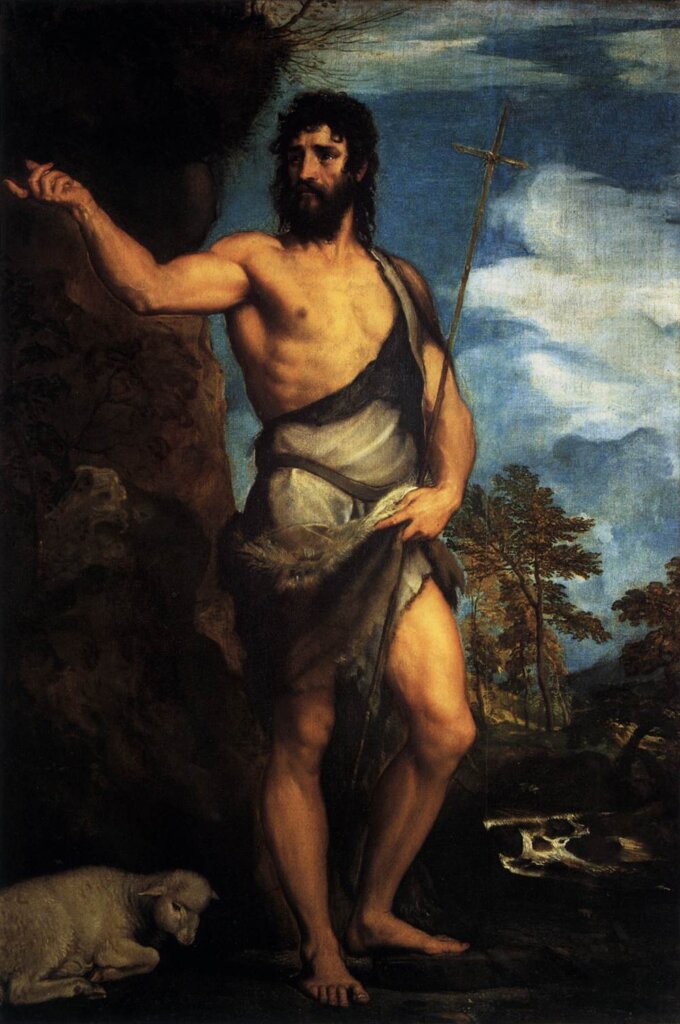
The Catholic Church celebrates the feasts of saints on the anniversary of their deaths—which is when they began their eternal life in heaven—but with St. John the Baptist, something special happens: we celebrate his birthday (nativity) as well as his martyrdom.
It is interesting to note that we honor his nativity on June 24th, six months before we celebrate the nativity of Our Lord and Savior. This is because the Bible reveals that St. John was six months older than Jesus.
It is also appropriate that the day of the feast of St. John the Baptist takes place after the summer solstice, which is the longest day of the year because it is the day on which the sun gives the most light. From this day onward in the western hemisphere, the amount of daylight decreases each day, and the days shorten.
In December, after the winter solstice, daylight increases more and more each day. It has been said that St. John “decreases with the sunlight” and Our Lord arrives on the darkest night, after which the light increases.
When you think about this, consider the profound words St. John once spoke:
He must increase but I must decrease.
John 3:30
This message of St. John the Baptist is one of humility. And humility is a necessity in the spiritual life.
Ponder this reality as a family, and community, when you host a bonfire gathering for the Feast of St. John the Baptist.
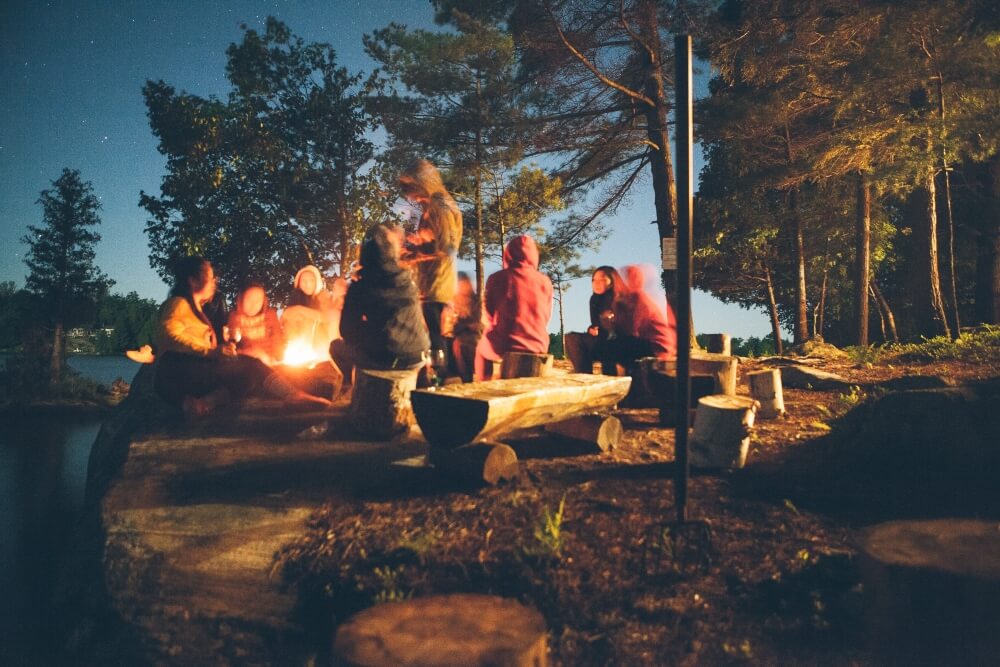
Sitting around a campfire is a wonderful way to consider our lowliness in the presence of God. Most of us are drawn to the flames of a fire, especially when we are surrounded by people we love. Even if we are alone, there is something warm and inviting about relaxing in front of a crackling flames. It inspires contemplation and a sense of gratitude.
Have you ever had a bonfire or a campfire on the Feast of St. John the Baptist?
If you have done so before or will be doing so this year, share tips with us on how to have a wonderful gathering!
Share your thoughts with us in the comments below.

